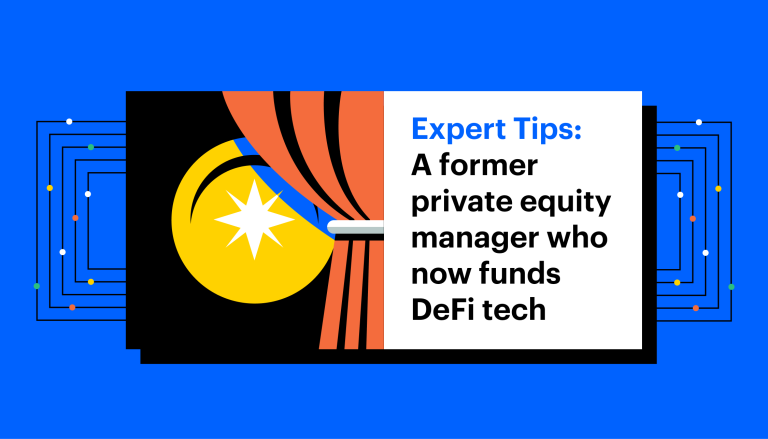Expert tips: A former private equity manager who now funds DeFi tech

We asked crypto influencers, veteran traders, and VC fund founders to share their top tips, essential research strategies, and more. In this article, we speak to ParaFi Capital managing partner Ben Forman.
Ben Forman is the managing partner of San Francisco-based ParaFi Capital, a fund that invests in blockchain technology and decentralized finance (or DeFi) markets. He founded ParaFi in 2018 after a decade of working in traditional finance — focusing on private equity and credit markets — at major firms like KKR and TPG. “Outside of Bitcoin as a non-sovereign store of value, DeFi is the main area of the blockchain space that has real product-market fit, real users, and real traction,” he says. “Non-sovereign, uncensorable financial services is where we're focused.”
Take the long view
Especially when it comes to Bitcoin, Forman recommends investing amounts you can afford without trying to time the market. “Trying to predict where the prices will be in a week or a month just isn't a great use of energy, in my experience,” he says. “I've been investing in crypto since 2013, through multiple bull and bear cycles. I believe virtual assets have a place in everyone's portfolio — it's just a matter of how you want to size that exposure.”
DeFi demystified
DeFi allows for novel financial products like flash loans and quick, cheap, cross-border transfers of value. Forman believes DeFi’s big themes — faster, cheaper, greater accessibility— will help it to transform the financial industry. “All the 'ing verbs’ of finance are what we’re looking at,” he says. “Lending, borrowing, hedging, exchanging, indexing, robo-advising. In traditional capital markets, all those things have friction and middlemen extracting fees.”
Experience is the best teacher
Some crypto concepts can be difficult to grasp in the abstract. Forman recommends putting aside small sums and trying a few DeFi apps for yourself, using a crypto wallet and browser such as Coinbase Wallet, “...just start using applications. When you swap between two tokens on [decentralized exchange] Uniswap, you get a feel for it. Or when you deposit stablecoins to [lending protocol] Compound and start earning a dollar-denominated yield without any kind of direct counterparty risk, that’s really interesting. That's when the lightbulb goes off.”
Embrace the rabbit hole
A huge amount of information is available to all crypto investors. Forman suggests visiting DeFi Pulse — a website which ranks protocols by the amount of capital that is “locked” into them at a given time — and clicking on interesting-sounding projects to see what they do. “At any given time I have, like, 20 open browser tabs full of articles I need to read,” he says. “Each post leads to another post, which leads to another one — and you eventually end up on this journey of understanding.”
Dive into the data
One of the advantages of DeFi (at least for tech-minded investors) is the transparency afforded by blockchain. “You can look at applications and see, in real time, how many people are using them, how much they're using them,” Forman says. “So if it's a decentralized exchange, you can see how much volume is flowing through each day, and try to measure adoption and usage in real time.”
This story has just begun
Forman sees huge opportunity for crypto to make finance cheaper and more accessible — or, as he puts it, “an Amazon-like experience for money.” He also notes that these tools won’t always require specialized knowledge to use. “When you send an email, you don’t need to understand how SMTP works,” he says. “Or if you’re browsing a website, you’re not thinking about HTTP. It's all abstracted away. We’re entering a world where finance and capital markets will run through blockchains. But we're not going to have to think about blockchains.”